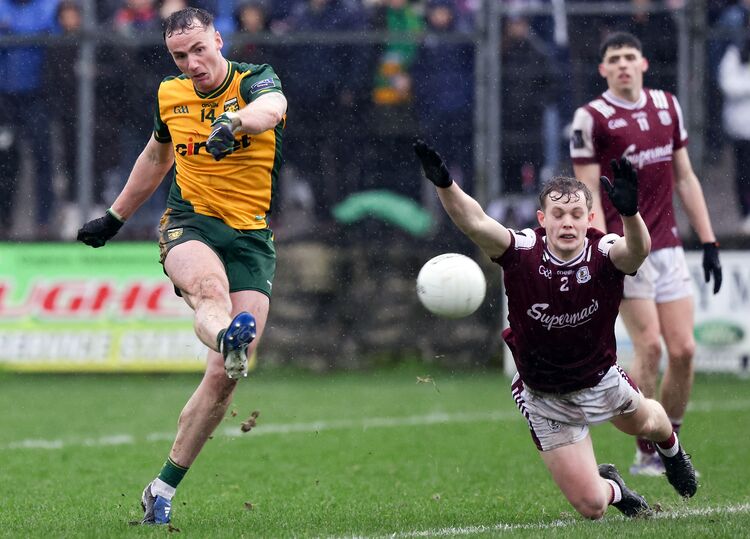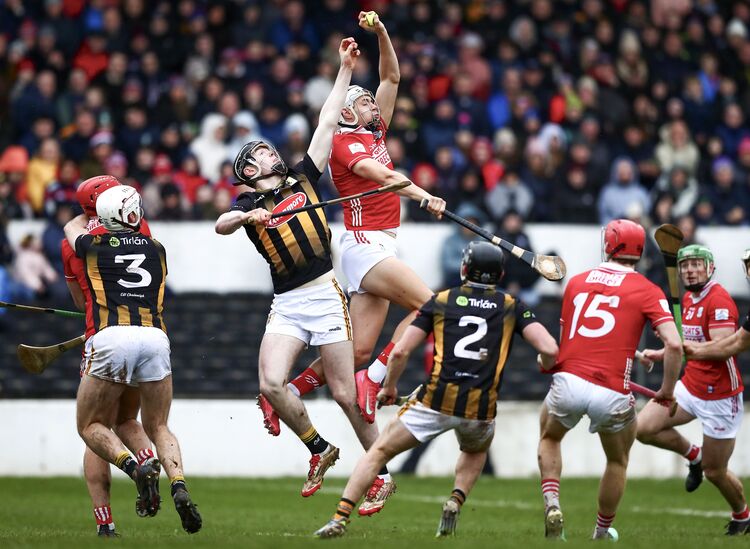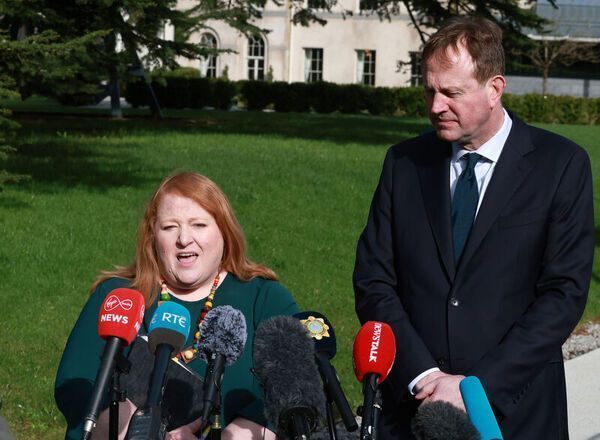By Earle Hitchner
DUN LAOGHAIRE, CO. DUBLIN - "What's so funny 'bout peace, love, and understanding?" Elvis Costello (part-Irish real name: Declan Patrick McManus) sang in the Nick Lowe song he covered in 1979. Two other lines in that song are "And where is the harmony? / Sweet harmony."
Those lyrics flooded back to me on Sunday, July 25, at the 10th annual Festival of World Cultures, a well-organized, stress-free celebration of peace, love, understanding, and sweet harmony through eclectic music, dance, and other arts in Dun Laoghaire. By then, news had spread about the crowd stampede killing 19 and injuring 342 in Duisburg, Germany, on Saturday, July 24, at the "Love Parade" techno-music festival that attracted up to 1.4 million people. The "Love Parade" has since been canceled permanently.
In contrast, the Festival of World Cultures will continue to thrive not only because it offers a bounty of well-conceived events and contributes millions of euros to the Dun Laoghaire economy but also because it emphasized an "International Charter of Compassion" and multi-faith, multi-race acceptance throughout July 23-25.
Walking the festival site with more than 200,000 other people, I saw a Medecins Sans Frontieres exhibit featuring Plumpy Nut, a therapeutic food intended for starving populations; a "Faith Space" venue on Carlisle Pier; "Travelers: Past, Present, and Future," an exhibit about Ireland's traveling people; an interactive public art installation; a recycling compound; "Cool Earth," an informational display about climate change; "Health & Harmony," a fair for holistic and alternative therapies from around the globe; and various crafts of skill and beauty.
In addition to what I described in last week's "Ceol" column, I went to the Loft at the Purty Kitchen late Saturday night, July 24, to catch Orchestre Poly Rythmo de Cotonou in action. Before an enthusiastic, wall-to-wall crowd, this Benin ensemble laid down a highly danceable, voodoo funk rhythm with instrumentation featuring two electric guitars, two saxes, maracas, trumpet, keyboards, and drums.
Earlier that day at the Kingston Hotel Garden Stage, serving as the festival epicenter for Irish traditional music, I caught the Mairtin O'Connor Band (featuring Cathal Hayden and Seamie O'Dowd), Cirrus (a new unit headed by Donal Lunny and featuring Taghd Maher, Tara Breen, Tommy Fitzharris, Dermot Sheedy, James Mahon, Robert Harvey, Stephen Rooney, and Ciara Cunningham), and the Unwanted, a trio comprising Cathy Jordan, Seamie O'Dowd, and Rick Epping.
Each of those three acts performed with gusto, but the band led by Galway button accordionist Mairtin O'Connor and buttressed on this day by percussionist Jim Higgins was brilliant. The tight interplay between O'Connor's box and Hayden's fiddle was breathtaking in "The Boys of Coonamore / Tongs by the Fire / The Hunter's House," and the swing invested by the quartet in O'Connor's composition "Catwalk" was hypnotic, full of sly nods to Stephane Grappelli from Hayden on fiddle and Django Reinhardt from O'Dowd on guitar. A medley that included "Pat's Polka / Begley's Frolics / Dance of Life / Jamaica Jam" pulsed with energy, expertise, and joy. A virtuosic marvel on button accordion, Mairtin O'Connor is Ireland's closest counterpart in technical skill to America's Joe Derrane.
Olga Barry, the festival's general manager, told me that the festival decided this year "to bring a major focus to a really good program of Irish traditional music in one area. So we have the Kingston Hotel Garden Stage outside for mainly concerts by traditional bands and the Departures Lounge inside for collaborative or experimental music from musicians cutting across different genres or traditions. We know there's a risk of certain combinations making sense on paper and then not turning out as successfully as we hoped, but that's part of the creative process. We know it can't be just cerebral. It has to have some sort of emotional appeal."
Music for head and heart was certainly in abundance on Saturday evening, July 24, at a sold-out Pavilion Theatre, where a radically different but equally absorbing atmosphere was created by Dublin-born fiddler Caoimhin O Raghallaigh and Reykjavik band Amiina.
Perhaps the best album of Irish traditional music released over the past seven years is uilleann piper Mick O'Brien and fiddler Caoimhin O Raghallaigh's "Kitty Lie Over," ranked No. 1 in the Irish Echo's top ten list for 2003. O Raghallaigh, who also plays with singer-accordionist Brendan Begley, opened the Pavilion Theatre concert with some extraordinary solo exploration into texture, dynamics, and near-silences on fiddle. The titles of the tunes he played reflected his approach: "Ellipses," "What What What," and "It's All About the Rhythm of Our Toes." He's one of the most imaginative and fascinating musicians in all of trad today.
On that last tune he was joined by Amiina, providing a seamless transition into their music, a meld of classical, pop, electronica, and intriguing sonics abetted by light choral harmonies. Probably best known for their collaborations with Iceland's Sigur Ros, Amiina uses violins, piano accordion, kalimbas, harp, xylophone, glockenspiel, bells, glasses, electric keyboards, drums, saw, and laptop-manipulated sounds to create a sometimes blissfully dreamy, sometimes heavily percussive effect. Ethereal without Enya-esque triviality, Amiina are content to tap into mystery with no expectation of solving it. In that respect, the band is similar to O Raghallaigh: leading an audience into a different way of listening. Kindred souls from different traditions, Amiina and O Raghallaigh joined together to bring their concert of enveloping, empyreal sweep to a close.
During Sunday afternoon, July 25, on the Newtownsmith Main Stage, 70-year-old Calypso Rose made her Festival of World Cultures debut before 20,000 people, whom she enthralled with her Caribbean-steeped singing of such songs as "All Right," "A Man Is a Man," and, in homage to her grandmother from Guinea, "I Want to Go Back to Africa."
Also on Sunday afternoon, I attended some superb concerts at the Kingston Hotel Garden Stage. Included was Buille (Niall and Caoimhin Vallely, Brian Morrissey) with special guests Donal Lunny on bouzouki and guitar and Karan Casey, Niall's wife, singing "16 Come Next Sunday," which she dedicated to Lunny, a founding member of the Bothy Band who covered it in 1976, and "Aililiu Na Gamhna," a song she recorded with Solas in 1997. Niall Vallely especially stood out on concertina, playing a lovely slow air at one point and a jazz-inflected melody at another.
The Alan Kelly Quartet, led by the band's namesake piano accordionist from Roscommon, and Guidewires, a Clare-based group featuring concertinist Padraig Rynne, fiddler Tola Custy, and flutist Sylvain Barou, were no less impressive.
But Lunasa, who flew into Dun Laoghaire from Asturias in northwest Spain, was unmatched for combining dexterity with drive. Kevin Crawford's whistle playing led "The New Day March / Ryestraw / An Old Woman Would" medley, while the fit of his flute and Cillian Vallely's uilleann pipes in the jigs "Ciara's Dance / Burning Snowball / Road to Reel" was faultless. An almost palpable tenderness surfaced in Crawford's flute playing of a tune he wrote, "Absent Friends," nimbly shaded on guitar by Paul Meehan.
Integral to Lunasa's signature sound are Sean Smyth's fiddle and whistle playing and Trevor Hutchinson's double bass playing, and each was in peak form, especially on "Scottish Concerto Strathspey / Trip to Windsor / Punch in the Dark." At the end of their concert, Lunasa invited Tola Custy and Alan Kelly to join them on stage for a rousing medley. Now logging 15 years as a band, Lunasa simply gets better with age.
The promise of a "world music interchange" inside the Kingston Hotel's Departures Lounge between 8 p.m. and midnight (or later) on Saturday and Sunday was more than fulfilled. In this cozy room on Saturday night, I saw an inspired collaboration by Mairtin O'Connor, Cathal Hayden, Seamie O'Dowd, Rick Epping, Cathy Jordan, Lazik (Cork-based band specializing in European music), and percussionist Mel Mercier. On Sunday night, the infusion of diverse talents was intoxicating. Former "Riverdance" star Colin Dunne danced to an Irish-Basque-African rhythm, Liam O Maonlai sang "Lakes of Pontchartrain" and, in Irish, "Bridget O'Malley" as well as performed on keyboards and harp in various combinations, Guidewires played a shower of Breton gavottes and linked up with O Maonlai and Lunasa's Paul Meehan, the duo Ttukunak from the Basque country employed wood against wood and wood against metal pipes, all carefully arranged to summon startling percussion, and Morocco's Najib Soudani Group performed poly-percussive music in native costumes and with some dervish-like dancers.
The late-night revelry concluded on a high note of cross-cultural cooperation with Trasna, an ensemble apparently assembled for the occasion. It featured O Maonlai, Mercier, Dunne, Niall Vallely, keyboardist Paul O'Donnell, Congolese guitarist Niwel Tsumbu, members of Guidewires and Najib Soudani Group, and festival project manager and percussionist Mary Hickson.
It was impossible to sample everything that the 10th annual Festival of World Cultures offered. (The official program booklet was a jam-packed 56 pages.) But what I managed to take in, I will not let go. The experience is indelibly ingrained in my memory. And whenever I see those Irish tourism ads stating "This is the year to come home," I will think first of the Festival of World Cultures in Dun Laoghaire, where the welcome could not have been warmer.
Visit www.festivalofworldcultures.com for further information about this spectacular annual event.
[PHOTO: Cathal Hayden, Mairtin O'Connor and Seamie O'Dowd.]










